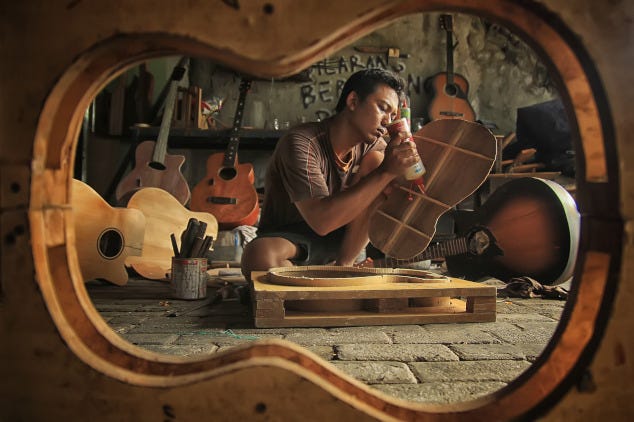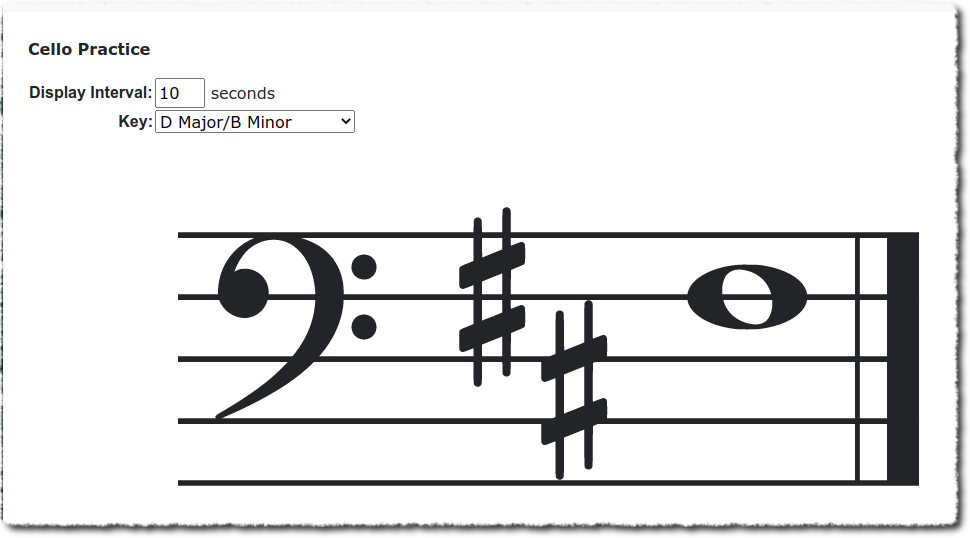Tools for Practice
Building the tools you need to develop a skill will also deepen your understanding of that skill.
The pandemic has offered unprecedented opportunity for reflection and self-improvement. Unsurprisingly, most people don't see it this way and therefore have failed to take advantage of the opportunity. Upsetting the status quo and the familiar - however slight - leads to a disproportionate amount of stress and anxiety for many people. The prospect of getting to know their families or themselves better proves uncomfortable enough to drive people toward bing-watching TV, over-eating, alcohol, or any number of other distractions. Anything to avoid introspection. My theory is that this happens because most people have either lost or never had the skills for self-reflection. External validation is the way of the 21st century. That usually ends up with them expending exorbitant amounts of effort justifying their shortcomings or assigning blame to the nearest face they can put on their problems - an "annoying" partner, an "uncooperative" co-worker, etc.
I also believe it takes very little effort to begin the work of reflection, introspection, and self-improvement. Start simple.
When it was clear the pandemic lock-downs were going to go on longer then the "experts" kept saying - evidenced by the weekly movement of the goal posts - I began to wonder how I might use this newfound flexibility for how I organize time. No longer confined to the hours during which I would normally be in the physical office, I could now complete my 8 hours of work - broken into pieces - at almost at any time during my waking hours. Plus the distance I had to commute back and forth from home and work shrank to an incredibly small fraction of what it used to be. This, too, opened up more time. This change didn't just occur in my world, but globally. And since everyone else still needed to stay employed, many creative people found ways to continue their professions in a virtual environment. Suddenly, engaging in things of interest but were unattainable because of time and space requirements became available.
I had been wanting to rekindle my interesting in playing cello for years. I hadn't had a lesson in over 10 years and practice had fallen by the wayside. Now, connecting with an instructor was not only possible, but the number of options had exploded. There are now many on-line videos and instructors available. After a little research, I connected with an instructor in New York City and have been taking weekly lessons for the past three months.
The re-introduction of live music - particularly music that I'm playing - has had a surprisingly positive impact on my disposition. As a card carrying introvert, I thought I'd been handling the pandemic lock down pretty well, especially when compared to many of my peers. Yet this small change, focused on personal development, brought warmth and light to mid-winter days.
So that's the back story. Now that I'm in the groove again with playing cello, I can describe several things about this experience that I've learned with respect to practice, particularly deliberate practice.
Along with playing cello, I wanted to deepen my understanding of music theory and learn how to sight read music. During one of my lessons, the instructor and I kicked around the idea of using flash cards. The card would show a single note and the student would play that note. Searching later for such an application was unsuccessful. It probably exists, but it wasn’t something I wanted to spend more than 30 minutes trying to find.
All the flash card programs I looked at are designed to teach things in a question - answer format. They work well for subjects like history or learning a new language. But nothing that would simply show a new card after a time delay. So I wrote my own program to accomplish this. In the process, I developed my understanding of the cello's range of notes and music keys in general. Here's a screen capture of the first iteration's MVP:
At an adjustable interval, a new note within the cello's range is displayed in the selected key. For my skill level, this is immensely challenging. And I can tell it is developing my skills for sight reading and quickly finding a particular note on the instrument.
Developing tools like this is second nature to me and the result of many years of experience working with wood and solving business problems with software. Each of these activities has a tenet that if you can't find a tool you need, you build what you need from scratch. This tenet is all the more powerful by having stewed in the mindsets associated with hand tools and open source software. In a very real sense, creating tools that support acquiring a new skill are part of the practice. To build an effective tool, you must fully understand the problem it is intended to solve. An effective tool is the result of having asked and answered many good questions. And, of course, all this is driven by an Agile mindset (iterations, tests, experiments, redesign, retest, etc.) design thinking, and understanding the context in which the tool will be used (systems thinking.)
Image by endri yana yana from Pixabay





